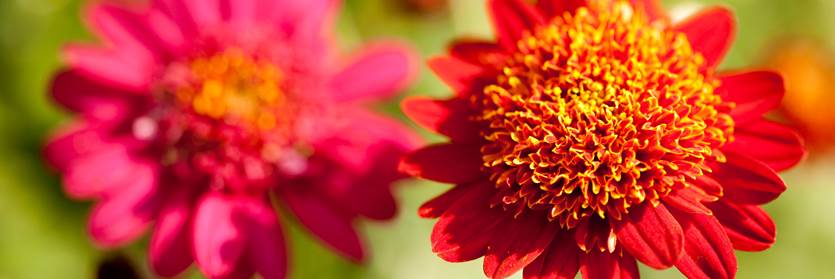The Diary of H.H. Rusby: The Bolivian Climb
Posted in Around the Garden, Science on June 29 2013, by Anthony Kirchgessner
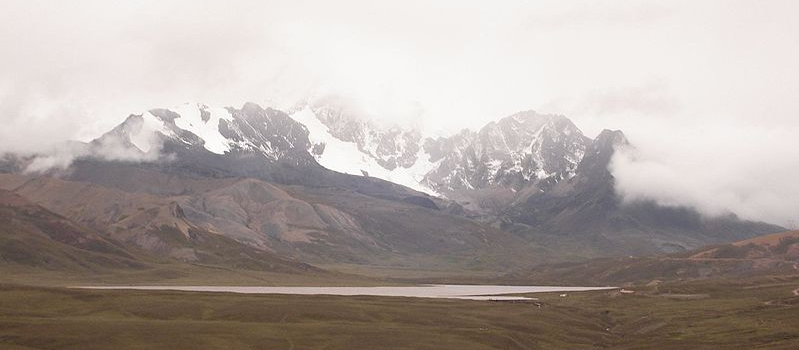
Altitude and cold weather continue to plague Rusby, who decides to travel ahead to warmer climes, but must pass through even higher and colder mountains to do so. He is helped along the way by the Guggenheim mining company, providing him with many comforts in the inhospitable mountains. But the survival of the expedition is in jeopardy, as the supplies have not yet arrived.
OFFICIAL DIARY of the MULFORD BIOLOGICAL EXPLORATION OF THE AMAZON BASIN
H. H. RUSBY, DIRECTOR
WEDNESDAY, JUNE 29, 1921
This has been a very important day for us. I rose after a night of much discomfort from my cold and remained in the house all day. I wrote a long letter home and partially straightened out my accounts and brought my journal up to date. We have today made our final arrangements about our journey from here to the Boopi, and it appears that there are some unpleasant complications which will render this transaction less favorable than we had anticipated. Mr. MacCreagh had virtually committed himself to send our cargo by a contractor over a different route than the favorable one provided by the Guggenheim Company. It now transpires that we must carry out this arrangement, sending most of our freight directly by mule to Canamina, at a cost of about $3.50 American money per hundred pounds, and going ourselves with a small outfit by way of Eucalyptus and Pongo.
The freight did not arrive in time for any work at repacking today.
THURSDAY, JUNE 30, 1921
I tried this morning to make some final purchases and transact some more business, but it was a holiday and all of the stores were closed.
Minister Maginis and Consul Brown, having made an appointment for us to visit the cabinet Ministers and the President, called at 2:30 P.M. to take us to make these calls. We called first on the Secretary of Foreign Relations and after a pleasant chat, his private secretary took us to the President’s office. This, intended to be a near formal call, developed into a somewhat extended and very pleasant interview. He was greatly interested in our work and also in my accounts of occurrences which took place when I was here before, and in my comparison of past and present conditions. He appeared to me to be a very well read man, discussing with intelligence some of the specialties in our work. He strikes me as being a very worthy man, but too seriously inclined toward important subjects to be able to enter into the spirit of the political scheming by which these governments are run. For this reason he is not popular, and I fear that he has a hard time ahead of him. Toward the end of our call he voluntarily offered to write personal letters to the officials in the region that we are to traverse, recommending that we receive every assistance and consideration.
After this we went to the other ministers and were everywhere received with the greatest consideration.
It is unfortunate to be obliged to record a serious difficulty with the transfer of our freight to this city. When it failed to arrive as expected, telegraphic inquiries brought the information that no action had been taken regarding its shipment, in spite of the positive promises made by the agent of W. R. Grace & Company, to ship it immediately. A large drove of mules will be here on Monday to get this freight, but the next freight train will leave Arica on the following Wednesday, and a week is required for the journey. A thorough discussion of the situation led to the decision that we must try and have it brought on Monday’s passenger train, which will arrive on Tuesday, not withstanding that the expense will be frightful. Mr. Maginnis therefore took us to Señor Rodriguez, the Chilean Minister, who is also a high official of the railroad. He sent a long telegram to Arica, requesting that the baggage be sent on Monday’s passenger train. Dr. Mann and Mr. MacCreagh were commissioned to go to the Grace agent in this city and make a spirited protest against treatment that we had received and to ask them to telegraph imperative instructions for prompt action. We also telegraphed an official of the American Institute, who went to Arica yesterday, to use his efforts in the same direction.
During last night I suffered severely from “soroche” and developed a Bronchitis, which has made me somewhat anxious. Every member of my party, as well as the minister and consul, are urging me to leave tomorrow for a warmer locality on the road that is to be taken as soon as the freight arrives.
It appears to me to be almost impossible to get ready, but I am seriously considering it. After long and serious consideration, I have decided to show MacCreagh Cattell’s letter to me and then submit it to the film company, together with Mr. MacCreagh’s statement. This I did this evening and Mr. MacCreagh decided to discuss the matter in the presence of all members of our party. My conclusions on this subject have been submitted to the film company in a letter which will be mailed as soon as MacCreagh’s statement is ready.
Mr. Brown showed his solicitude for me by coming down about bed-time with a handsome Vicuña robe to keep me warm.
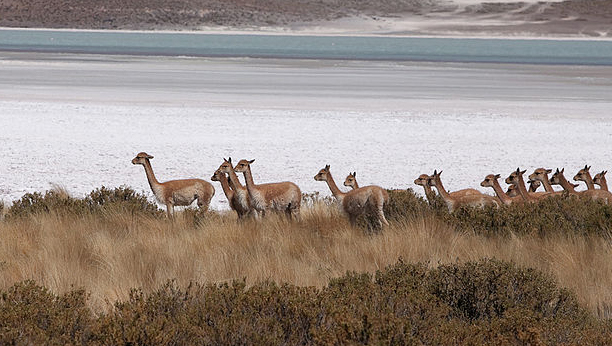
FRIDAY, JULY 1, 1921
My condition during last night was such as to cause me considerable anxiety and I determined to leave today for Canamina and await the arrival of the others. The news of my condition soon spread and several solicitous friends called to see me, among them the minister, who strongly approved of my resolution to leave.
My niece, Helen, called and expressed her great regret that I could not attend the Fourth of July celebration at the Institute this afternoon and make an address on patriotism as had been arranged.
I drew three thousand dollars ($3,000.00) from my letter of credit to-day in preparation for my journey, Dr. Mann having drawn a thousand yesterday. We secured the very favorable rate of $4.4o for the American dollar. It had been agreed that this large sum of money be divided among us for safe keeping but no one is to use any part of it until after a book transfer has been made.
It required the greatest activity on my part to make the necessary preparation for my departure and to give instructions and advice in regard to the things to be done after I leave.
My companions assisted me in securing letters to the people to whom I am to go in the various places through which we pass.
The entire party went to the train to assist with the baggage and to see me off, three automobiles being required for the work. I took Helen with me and found that she had provided us with an abundance of lunch for the journey and some ice-cream to be eaten on the train. On our ride to the summit of the table land, in a pit of which La Paz is located, I had a fine opportunity to view the city and compare conditions with that when I was here in 1885. I think it is fully five times as large and there is very little room left in the basement for further development.
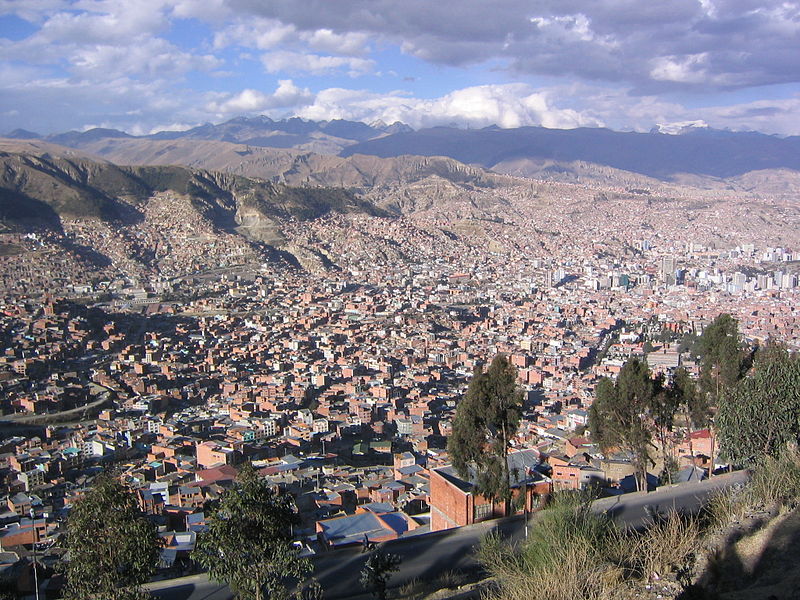
On the ride to Eucalyptus, Mr. McCarty and I improved the opportunity for working on our records. The road bed was excellent and we made good time, arriving at Eucalyptus at nine o’clock, P.M.
On the road we met a Guggenheim agent. Mr. ______, who was taking money to Eucalyptus for the monthly payroll. He was most considerate to us and told us that the company had received instructions from New York to spare no effort to assist us and to accept no compensation for services rendered. After sundown it became very cold and when we prepared to leave the train, our friend insisted on taking off his overcoat and giving it to me. We were met at the station by a large number of the company’s men, who quickly carried our luggage to the company’s living-room. The agent was obliged to return to La Paz on the mid-night train and gave us his rooms, where we found a roaring fire and were made most comfortable. The wives of the officials sent in a Vicuña robe and a hot-water bag to add to my comfort.
SATURDAY, JULY 2, 1921
I arose early, after a sleepless and uncomfortable night, having had great difficulty with my breathing. We had an early and excellent breakfast and a magnificent and large automobile was ready for us at seven o’clock. The ladies insisted on loaning us a robe of Vicuña skin and a woolen robe in addition to our own blankets, assuring us that we would need them on the ride. We were not allowed to pay for anything except that I bought a hundred (100) gallons of gasoline for our Evinrude motor, at the very low price of $.50 per gallon. We had a big autoload, but the road made by the Guggenheims was magnificent, the machine strong and the driver very competent. We traveled for many miles over a tableland which gradually rose, our road pointing straight toward a snowy range in the distance. As we entered the foot-hills we began to climb rapidly. The air became very cold and the cruel wind appeared to pass through all wraps, almost as though they were not there. We both suffered severely and I became decidedly anxious about the results of this exposure.
The ground was almost barren of vegetation, but there were evidences of a rich flora in the rainy season. We passed a great many enormous herds of Llamas and Alpacas. We took breakfast almost on the summit in an indian hut, but we suffered so much from cold, even inside the house, that we could hardly eat. We passed the summit at about 14,500 feet and commenced an extremely abrupt descent, which was also very tortuous. The engineering work on the remainder of this road represents a very great achievement. The heights, chasms and valleys, were most stupendous and the scenery the most magnificent that I have ever seen. The wind was now cut off, the sun was hot and we soon became comfortable. A very strange and interesting set of plants began to appear on the slopes and we could not forbear stopping and collecting some of them.
Presently we reached a point where the automobile road turns to again ascend the range, passing over a 17,000 foot ridge and then dropping to 15,500 feet, where the mine is located.
At the point mentioned our road becomes a mule road and we were soon riding these animals along the steep descent to Pongo, at a little less than 13,000 feet. Here we were assigned very comfortable quarters and were soon at home. We were much interested in a canal which brings water to an electric power plant that works the tin mine of the company.
Although the vegetation of the valley at this point cannot be called luxuriant, it is decidedly abundant and very interesting and we shall try to collect considerable here in spite of the fact that the drying paper is not with us. I picked up specimens of eight species on the way and pressed them between newspapers.
We devoted the evening to writing up this journal for several days past.
I telegraphed to La Paz about bringing or sending certain things here which I much need.
SUNDAY, JULY 3, 1921
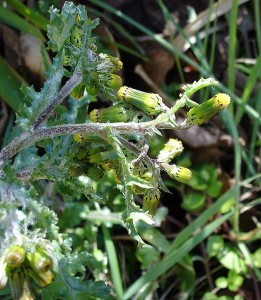
We were so comfortably situated here and there are so many interesting plants to be collected on the mountainside that we decided to remain a day longer before going to Quime. Up to the present time I have collected thirty-eight (38) species here. Being without driers and having only a half dozen newspapers I have dried these specimens by suspending them over an electric heater. As a result, they have turned brown and are in very bad condition but still they will serve a useful purpose as scientific records.
The Guggenheim Company has a very fine power plant here, the water being brought through a long canal cut into the mountain side, and the electric current being sent across the range to their tin mine. Thus we are enabled to have both electric light and heat in our room. The scenery here is wonderful. We are in a deep valley, with the mountains so high on both sides that we have to strain our necks to see the tops of them. After collecting plants until we were out of breath and very tired we devoted the rest of the day and until late in the evening to writing important letters and bringing our records up to date.
The MacCreagh-Cattell incident is demanding a great deal of my attention, as I wish to be very sure of my ground at all points before making my report.
Among the interesting plants here collected are four species of Senecio, two species of Fagelia, a lovely pink-flowered Chuquiraga, three species of Bystropogon, two species which are apparently Wernarias, three species of Baccharis, a Eupatorium, and two of a related genus. There are many ferns upon the mountain side but it would be utterly impossible for me to dry them under present conditions.
MONDAY, JULY 4, 1921.
We celebrated Independence Day by sitting in the house and waiting for the hard rain to stop so that we can descend to Quime. All the mountain tops are hidden by clouds which descend well into the valley.
TUESDAY, JULY 5, 1921.
My breathing was so difficult during the night that I resolved to seek the lower altitude of Quime to-morrow, that place being nearly two thousand feet lower than Pongo, in the morning, Mr. McCarty informed me that he had had the same difficulty and that his throat was quite sore, which strengthened my determination.
Before leaving La Paz, I gave careful written instructions to Dr. Mann as to which boxes, arriving by freight from Arica, he was to bring with him on this route, the rest of the cargo being taken under contract by an arriero named Rameriz, by the La Paz river route, at a cost of 15 Bs [bolivianos] per quintal. I had also given him the numbers of the boxes containing articles which would be needed on our route and which should be removed from them before delivery to Rameriz. Since then I have sent various telegrams regarding articles which must not be forgotten and I have written him a letter to Eucalyptus reminding him to bring the gasoline which I had bought and to buy oil and grease for our engine. With all of these precautions, if my instructions are carried out we shall have everything we shall need on our trip to Canamina.
While at breakfast, Mr. Silva told me that the Subprefect of Quime had died of typhus fever yesterday, and that he had been living at the hotel. McCarty and I therefore decided that we would not stop in the town but would seek some good camping place lower down in the valley. Typhus fever during the last year has ravaged this valley. There have been no cases since the first of the year and the trouble was supposed to have died out, but this looks as though it was going to break out again.
While packing, we received a call from Mr. Sinclair, one of the mine bosses, who told us that they had received advice that our party and out-fit would be at Pongo on the 7th and the seventy mules were to be in readiness to take all to Canamina. For various reasons, we were in doubt as to this program being carried out. After lunch we started, Mr. Silva lending us a tent and axe, which will be absolutely needed, and giving us a fine piece of American bacon.
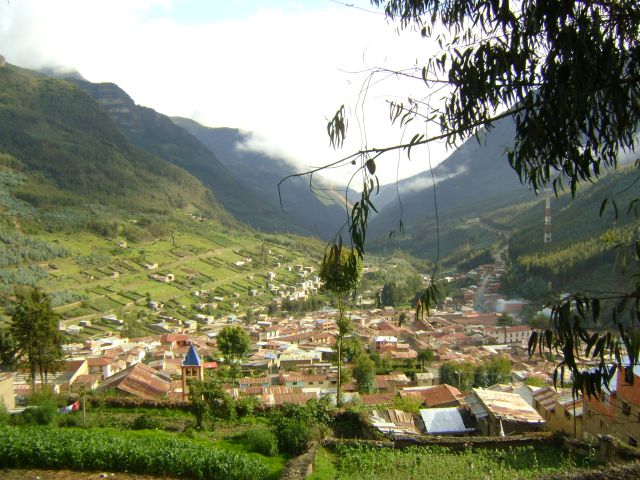
Our ride down the valley was a remarkable experience. Accustomed as I am to tropical vegetation, I never encountered any other flora with such a rich variety of showy flowers and shrubs. It was useless to collect them as I had no drying paper for preserving them and it was positively painful to leave them behind. I could undoubtedly have collected more than five hundred species within a distance of five miles and many of them would certainly be new. I resolved to try to return here during our wait in Canamina.
This flora is interesting as much for what is not here as for what is present. The road from La Paz to Coroico is considerably less than a hundred miles away. It is on the same side of the cordillera. The altitude is nearly as great, yet the predominant and conspicuous plants of that valley have not been seen here. There, fuchsias, begonias, oxalis, and gesneriads are numerous and prominent, yet I have not seen one of these plants here. I have previously noted almost as great a difference between the floras of the Coroico and Mapiri trails which are even closer together. This is a peculiarity of the Bolivian mountain regions.
The flora of every valley and quebrada [ravine] differs markedly from that of every other. This gives to the entire country a far more extensive flora than its mere area would suggest. Among the prominent plants seen today the following deserve mention.
A huge Nicotiana, ten or twelve feet high, with immense leaves and inflorescences, identical with or closely related to one seen near Mapiri; a great abundance of the pink flowered Chuquiraga, previously noted; several species of Fagelia “Calceolaria”; a number of Senecios and helianthoids; several showy Solanums and an occasional Vocconia; two or three spiny Verbenaceous shrubs; a beautiful Sessea and a Cestrum, with a great display of many species of Bromeliads. Berberis, the predominant shrub at Pongo, decreases as we descend the valley.
Before leaving Pongo, I learned much from Mr. Silva regarding the typhus fever epidemic. There were a great many cases at Pongo and at the mines and the mortality was only 15%. Probably the high altitude and low temperature had something to do with this low percentage. The preventive treatment here was to disinfect buildings and tents by burning sulphur. Clothing was boiled, and people were given delousing baths containing kerosene and formaldehyde. Dr. Eastman, an American physician, was in charge, and his wife superintended the nursing. The Company went to great expense and resorted to every possible method to stamp out the epidemic. Dr. Eastman took the fever and recovered. Unfortunately, he left for Eucalyptus before he had sufficiently recuperated, and died of heart failure, due to the high altitude, while crossing the divide.
When we reached Quime, we purchased some needed articles and were surprised at their low prices. We then had to travel a long distance to find a suitable camping place, which we reached almost at night-fall, so that we had to make camp partly in the darkness. After a pick-up supper we retired. As it was too late for our arriero to return to Pongo we shared our blankets with him.
Images courtesy of Wikimedia Commons.
